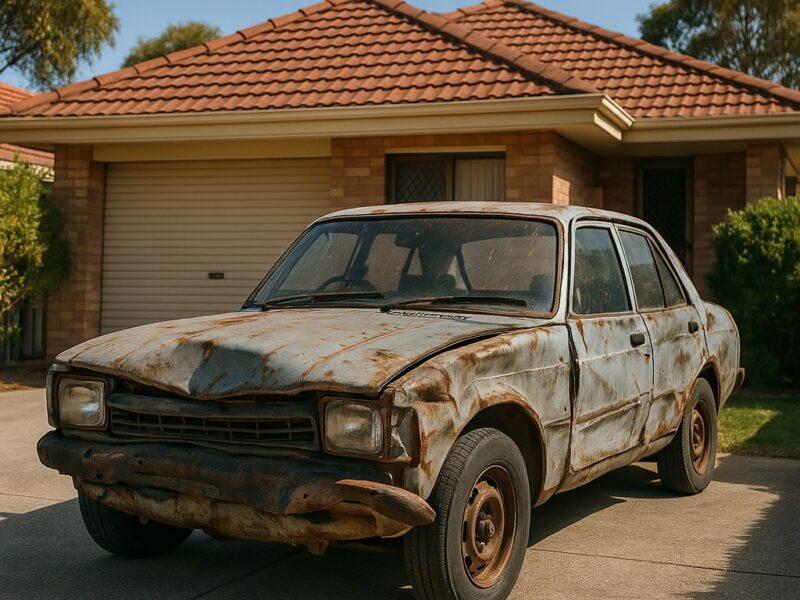An old car sitting idle in your driveway or garage might seem like nothing more than clutter, but it could be a hidden source of quick cash. Instead of letting your vehicle rust away, many services and buyers now offer convenient ways to Get Cash for Old Cars—whether running, damaged, or even beyond repair. Selling an old car not only puts money in your pocket but also helps free up space, reduce environmental waste, and sometimes even support recycling efforts.
This guide explores the many benefits of selling an old car for cash, the options available, and tips to make the process smooth and profitable.
Why Sell Your Old Car for Cash?
1. Quick and Easy Money
The most obvious benefit is instant financial gain. Instead of paying to store or repair a vehicle you no longer use, you can turn it into cash almost immediately.
2. Save on Maintenance Costs
Old cars can become money pits. Insurance, registration fees, and ongoing repairs add up. Selling the car eliminates these recurring expenses.
3. Space and Convenience
Freeing up space in your garage, driveway, or yard can make life more convenient. That extra room could be used for a new car, storage, or simply a cleaner aesthetic.
4. Eco-Friendly Disposal
Reputable buyers recycle usable parts and dispose of harmful fluids responsibly. Selling your car ensures it doesn’t harm the environment while still providing value.
5. Support the Economy
Car recycling is a thriving industry. Selling your old vehicle contributes to jobs, raw material reuse, and sustainable business practices.
Different Ways to Get Cash for Old Cars
1. Junk Car Buyers
Specialized companies purchase cars in any condition. They often provide free towing and immediate cash payment. This is a great option if your vehicle is no longer running.
2. Scrap Yards and Salvage Yards
These businesses buy old cars for their metal and parts. While payment may depend on weight and materials, it’s a straightforward way to get rid of a non-functional vehicle.
3. Trade-In at a Dealership
Some dealerships accept old cars as trade-ins toward the purchase of a new vehicle. While trade-in values can be lower, it’s convenient if you’re already buying another car.
4. Private Sale
Selling to an individual often brings a higher payout, especially if the car is still in working order. Online marketplaces and classified ads are popular platforms for private sales.
5. Donation for Tax Benefits
Though not a direct cash payout, donating your old car to a charity can give you tax deductions, which may be financially beneficial.
Preparing Your Car for Sale
To maximize your return, take these steps before selling your car:
- Gather Documentation: Have the title, registration, and service records ready.
- Remove Personal Belongings: Clean out the interior and trunk.
- Assess the Vehicle’s Condition: Know whether it runs, what parts are damaged, and what might still be valuable.
- Cancel Insurance and Registration: Avoid unnecessary charges after the sale.
- Remove Valuable Parts: If you have mechanical skills, consider removing and selling high-demand components like batteries, alternators, or tires separately.
Factors That Influence How Much Cash You’ll Get
- Car’s Condition – Running cars fetch more money than ones that don’t.
- Make and Model – Popular or rare vehicles may have higher value.
- Year of Manufacture – Newer cars typically bring higher payouts.
- Demand for Parts – Vehicles with in-demand parts can yield more money at salvage yards.
- Weight and Materials – Scrap yards often base payment on weight and the type of metal.
The Selling Process Step by Step
- Research Buyers: Compare offers from junk car services, scrap yards, and dealerships.
- Request a Quote: Provide basic details about your car’s condition, make, model, and year.
- Schedule Pickup or Drop-Off: Many companies offer free towing services.
- Complete Paperwork: Sign over the title and finalize necessary documents.
- Get Paid: Collect cash or check on the spot.
Tips for Getting the Best Deal
- Compare Multiple Offers: Don’t accept the first quote—shop around for the best price.
- Know Your Car’s Value: Use online valuation tools to get a ballpark estimate.
- Avoid Middlemen: Sell directly to buyers when possible to maximize profits.
- Beware of Scams: Work only with licensed and reputable buyers.
- Negotiate: Many buyers expect negotiation, so don’t hesitate to ask for more.
Environmental Benefits of Recycling Old Cars
Selling your car for cash isn’t just financially smart—it’s also eco-friendly. Recycling cars:
- Reduces the need for new raw materials like steel and aluminum.
- Reuses components such as tires, batteries, and glass.
- Safely disposes of toxic fluids like oil, antifreeze, and brake fluid.
- Helps lower carbon emissions associated with manufacturing new parts.
By selling your car, you contribute to a more sustainable future while earning money.
Common Myths About Selling Old Cars
- Myth: A Broken Car Has No Value
Even non-functional cars can be sold for scrap or parts. - Myth: Selling Is Complicated
Many buyers handle paperwork and towing, making the process simple. - Myth: Only Dealers Buy Cars
Numerous junk car buyers and online services make selling accessible to everyone. - Myth: You Won’t Get Much Cash
While the amount varies, even scrap cars can provide a decent payout.
Final Thoughts
Your old car doesn’t have to sit idle, taking up space and collecting dust. By exploring options like junk car buyers, salvage yards, or private sales, you can get cash for old cars quickly and easily. Beyond the financial benefits, selling your vehicle responsibly also helps the environment and frees you from unnecessary expenses.
Whether your car is running, damaged, or completely beyond repair, it still holds value. By preparing your vehicle, comparing offers, and working with reputable buyers, you can turn a problem into profit. So, the next time you look at that old car in your driveway, remember—it’s not just clutter, it’s cash waiting to be claimed.



